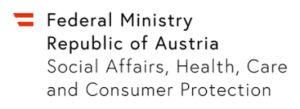


The project TAKE CARE – Integrated social and health services for vulnerable population in Western Balkans is funded by the Austrian Federal Ministry of Social Affairs, Health, Care and Consumer Protection. The Overall objective is contributing to improving the quality of life of vulnerable groups in Albania, Bosnia and Herzegovina, Northern Macedonia, and Serbia, which are exposed to an increased risk of poverty / risk of social exclusion through COVID-19.
The project’s starting date was 1st of July 2021 and ends on 30th of June 2023.
Summary of the project:
The project in Albania was implemented in two areas: Tirana and Rreshen. Tirana as capital of Albania with high number of population (almost 1/2 of total population of the country) and Rreshen north city one of the poorest areas. The project in both areas aimed to: Priority 1) improve the physical, social, emotional, and mental status of the COVID-affected / vulnerable population through the provision of integrated care services and Priority 2) focus on sustainable strengthening of local health and social system. The project implementation was done through providing services to the beneficiaries, as well as strengthening local networks. The project considered basic needs of beneficiaries, such as food, health, hygiene and sanitary, as well as their psychosocial and emotional needs through counselling, entertainment, and leisure activities. “fighting” aloneness and abandonment feeling of beneficiaries was very important for their wellbeing.
Achievement’s:
A) Access to integrated home care services
- 106 elderly people accessed integrated home care services.
- 106 elderly people accessed psychosocial support services.
- 312 Aids lent for home care services were distributed (5 crutches, 5 anti-decubitus mattresses, 14 basic wheelchairs, 5 wheelchairs with deposit, 262 adults’ diapers, 10 steel commode toilet chairs, 3 devices for measuring diabetes, 2 cholesteatoma bag, 3 aerosol devices, 3 Walking sticks)
- 30 people received hot meals for 6 months for 5 days a week.
- 106 elderly people have regularly received medicines based on their needs.
- 312 Personal protective equipment distributed.
- 186 hygienic package items distributed (soap, laundry detergent, dish detergent, window cleaner, acid).
- 206 Christmas packages distributed/2 times in 2 years.
- 186 Food packages distributed /4 times in 2 years (flour, oil, sugar, salt, sauce, rice, beans, pasta).
B) Access to professional counselling / information and services to improve their situation
- 55 people received legal counselling or were referred to specialized organizations.
- 106 people received psychosocial support and family counselling.
- A) Relevant training of staff, volunteers, and stakeholders.
- 9 training sessions were organized on the topics:
- 28 nurses were trained in the topic Nursing Care at Home for Elderly People.
- 19 caregivers were trained on the topic Support of Caregivers in the Care of the Elderly People.
- 53 volunteers were trained in 3 training sessions on different topics, such as: How to Take Care for elderly People; The Importance of Volunteering for Elderly People, The importance of Socializing Activities for elderly people.
- 100 persons participated in all trainings.
- 2% of participants say that their knowledge and skills improved through the training received.
- 70 copies of the Advocacy Policy Paper were produced and distributed.
C) Sharing good practices and networking for stakeholders
- 5 Meetings with national and 2 meetings with local stakeholders on registration of home help/caregivers were organized.
- 3 regional exchange meetings were carried out within the project.
- 2 Awareness raising and advocacy campaigns were organized.
- 3 MoU were signed. One with Tirana Municipality, one with Rreshen Municipality and one with Caritas Diocesan Rreshen.
- The project team in the period of two years organized frequent and intensive activities in both areas to bring some relief to the life of the project beneficiaries through complex interventions, as well as to ensure the improvement of their life affected by multiple difficulties related to ageing and the Covid 19 pandemic crisis.
Relevant stakeholders:
Public Institutions: Tirana Municipality, Administrative Unit 1, Directory of Social Services in Tirana Municipality, Directory of Social Services in Rreshen Municipality, Nurse’s order, Community Center in Shkoza, Center for Territorial Social and Economic Administration,
NGO -s: Vision Ngo, Gerontology Association, Mary Potter Center, SANUS
Local Businesses: Era Catering, Grandma, Different coffee shop
Caritas Network: Diocese Tirana- Durres, Diocese Rreshen

